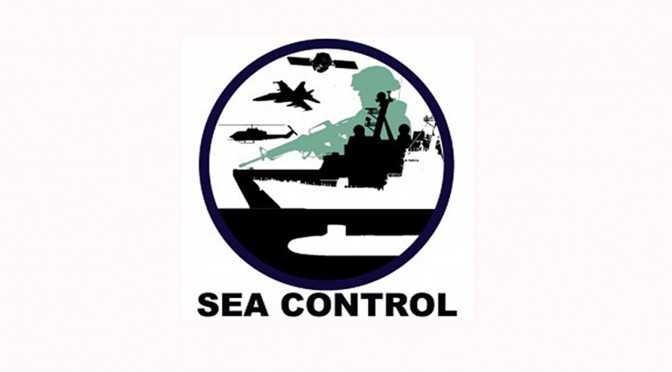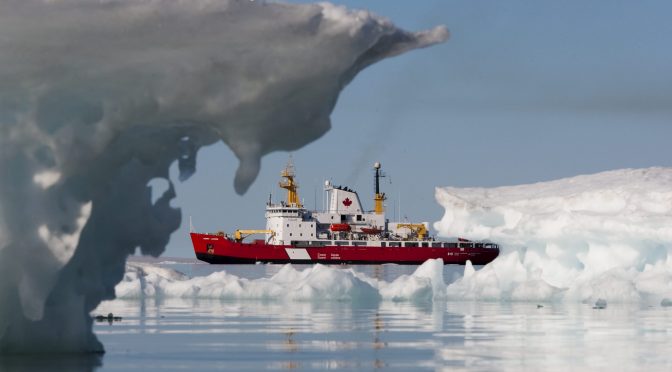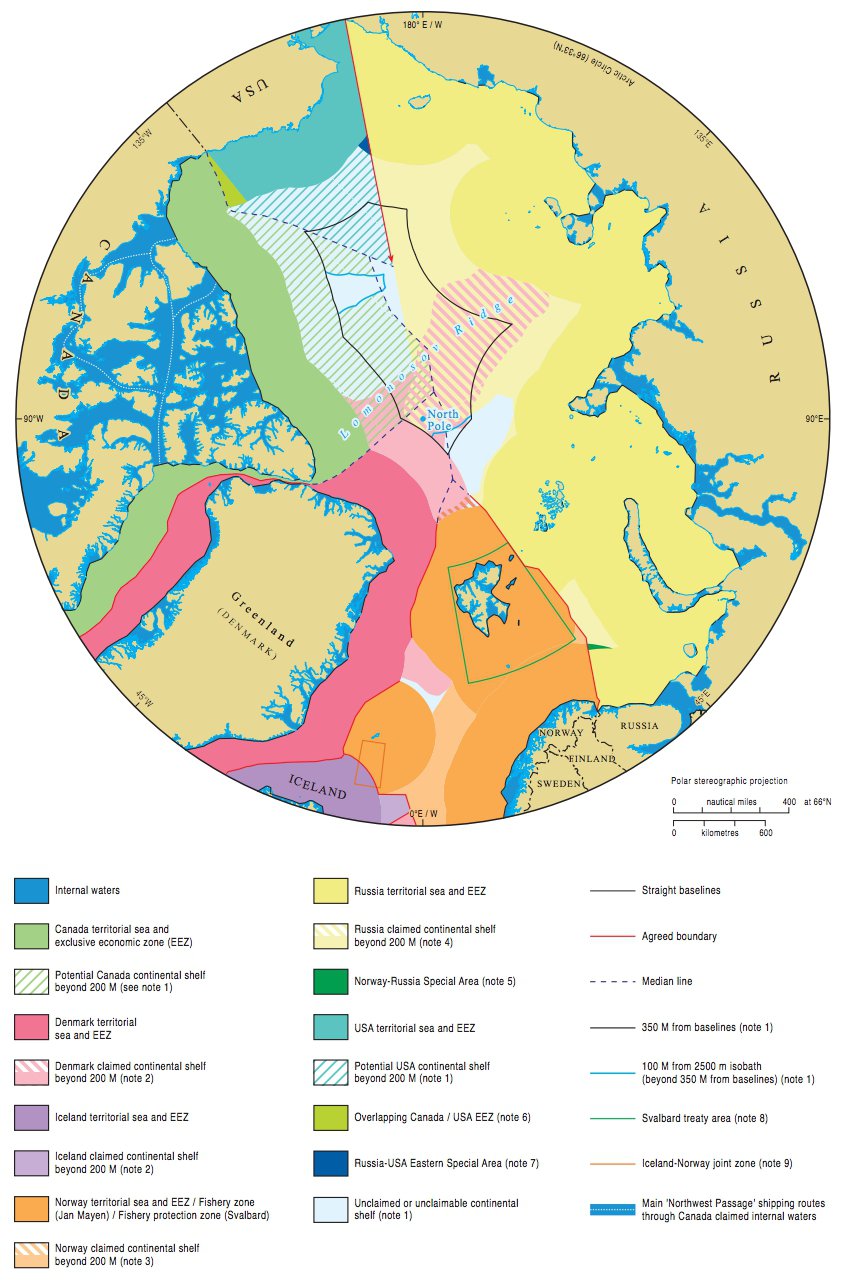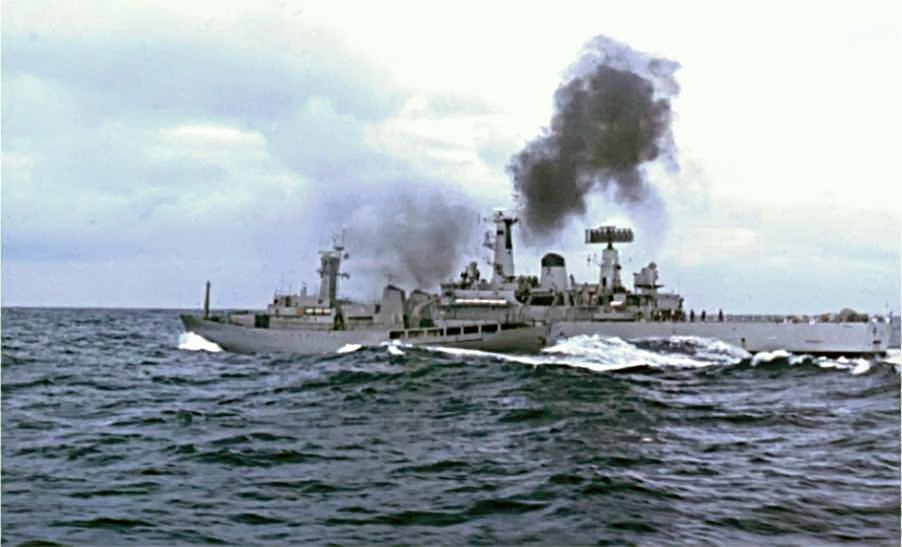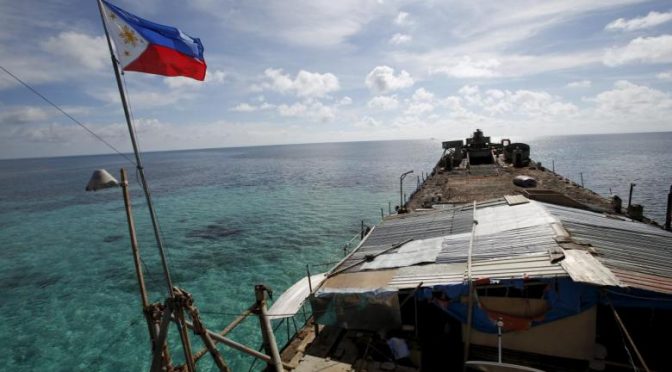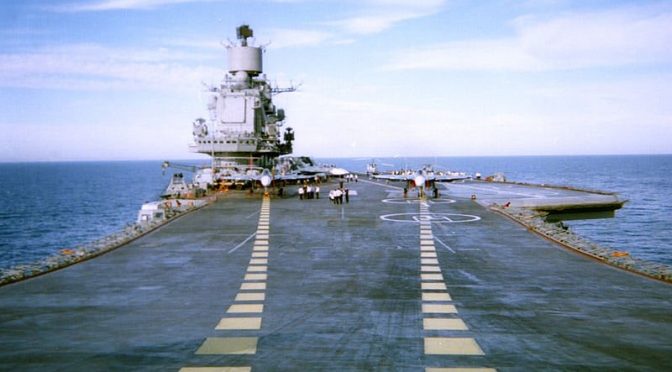By Matthew Merighi
Join the latest episode of Sea Control for a conversation with Professor Vasco Becker-Weingberg of Universidad Nova in Lisbon, Portugal, about the South China Sea. The interview, conducted by Roger Hilton of the University of Kiel, address topics including the role of the Law of the Sea, the oil sector, private security contractors, and everything in between.
Download Sea Control 134 – South China Sea with Vasco Becker-Weinberg
The transcript of the conversation between Vasco Becker-Weinberg (Vasco) and Roger Hilton (Roger) begins below. Special thanks to Associate Producer Ryan Uljua for helping produce this episode.
Roger: Hello CIMSEC listeners and welcome to another edition of the Sea Control podcast series. My name is Roger Hilton, and I am a non-resident academic fellow for at the Institute for Security Policy at Kiel University. With no shortages of geopolitical crises erupting today, our podcast could not come at a more timely moment. One global topic that is especially prone to unpredictability is the evolving list of security threats dominating the South China Sea (SCS). Thankfully, I have the pleasure of hosting Vasco Becker-Weinberg as our guest for this episode today. Vasco is a law of the sea professor at the Universidad Nova de Lisboa, and a coordinator of the LLM program on the maritime economy and the law of the sea at Nova. His contribution to the Routledge Handbook of Naval Strategy and Security outlines the very security issues dominating the SCS. Vasco, thank you for joining us.
Vasco: It’s my pleasure.
Roger: After reading your piece, it is clear that there are a litany of issues in the SCS outside of the region’s well-publicized territorial disputes.To lay the groundwork for the conversation, can you start by explaining to our listeners how the maritime space is currently organized, and some of the threats that we are going to discuss today?
Vasco: We’ll probably focus on maritime jurisdiction in the SCS, also perhaps refer to the seabed activities in the disputed maritime areas, meaning what is the regime applicable to these areas, and current threats–perhaps piracy, armed robbery, and weapons of mass destruction (WMD)–must be addressed as well.
On the issue of maritime jurisdiction, just briefly, it’s important that our listeners understand that this important maritime area is not no-man’s-land in the sense that this dispute has the result of two or more overlapping claims. These claims have to be based on the legal title recognized by international law and claims have to be made clearly to other states. What we see today in the case of the SCS is that some of these claims or claiming states, to be precise, neither put forward the basis on which they make their claims (i.e. their respective legal title), and second, what is the location (precisely) of the disputed maritime areas. So therefore this creates a sort of cloud of legal uncertainty regarding some of these claims.
To make matters even complex, our listeners should know that different offshore features have different legal regimes. So, the legal codification of the feature as an island or as a rock, for example, has different consequences in the type of maritime zones it can project. When we refer to maritime zones, essentially, we refer to territorial sea, to an Exclusive Economic Zone (EEZ). So in the case of a rock, a rock can project a territorial sea (TTS) up to 12 NM but if the legal status of this feature is an island or should be considered an island, then it can actually project a 200 mile EEZ. So the differences are actually quite significant. Of course, the tendency is that claiming states would always consider these offshore features to be islands, so that they can actually project greater maritime zones, and therefore, there’s an inherent stress between different claiming states between claimed offshore features. And in this respect, recent international jurisprudence has been extremely helpful in clarifying exactly what the relevant criteria in terms of what is a rock or an island. But let me point out that although there is recent jurisprudence on this matter, the debate is still very much alive.
When it comes to jurisdiction of states, it’s important to understand that the further you go from land towards the sea, the rights of states are not as intense as they are closer to shore. So, in the territorial sea of 12NM, that’s the first fringe of sea that’s closer to land, and states exercise more rights of sovereignty. But when we refer to sovereignty at sea, it’s not the same thing as sovereignty on land. There is no concept of private property at sea, for example, and you cannot cross the territory of another state. There is no right for you to do so without that state’s permission. Whereas in the TTS, for example, there is the right of innocent passage for certain vessels that comply with the conditions listed in the United Nations Convention on the Law of the Sea (UNCLOS). There’s no similarity between this right of innocent passage and any other right on land.
Then, forgetting about the contiguous zone, then after the TTS is the EEZ. The EEZ has its own special regime because it is neither TTS nor is it part of the high seas. It allows you to develop economic activities. It’s not exclusive, it’s economic. There’s very little that gives the state exclusivity in the EEZ. And finally, on the seabed and subsoil adjacent to the baselines of the TTS, we have the continental shelf. The continental shelf has been recognized as existing beyond the will of the coastal state to declare a continental shelf. It means that state exercises exclusive rights of sovereignty for the purpose of exploration of the resources of the shelf. There’s an erroneous perception some might have that the whole continental shelf is an extension of land sovereignty from the coastal state.It’s not that. It’s only focused on resources. And to end on a simple note, the current UNCLOS was developed on a resource-based approach, and a sectoral approach. Therefore, the whole issue of economic issues at sea and environmental resources is quite central to how the current legal regime has developed in recent years.
Roger: Thanks for such a comprehensive introduction. Undoubtedly, all of the technical and legal information you outlined is critical to understanding the activities in the SCS. It’s definitely a lot for the states in question to consider. Let’s get to some specifics now. As you state, tensions among the claiming states have shrunk the prospects for the delimitation of boundaries either via agreement or compulsory mechanisms. Against this backdrop, how do states interact legally in this gridlock?
Vasco: Well it’s true that it has become very difficult for states to agree on a compulsory set of mechanisms – meaning, resorting to a third party or any other means of settling the dispute. On the other hand, the fundamental reason why states have not been able to come to an understanding or an agreement is precisely the lack of clarity regarding some claims and some legal titles.
So what are states bound to do if they can’t reach an agreement? International law is quite clear in defining these obligations. The first principle is the preservation of the maritime environment. In the disputed area, claiming states can’t act as if it’s a no-man’s land and have different conduct in that area. So they have a fundamental obligation to protect the marine environment, which states are bound to. Another obligation is that of the freedom and safety of navigation. Just because it is a disputed maritime area, the rights of third-party states are not shrunken. So guaranteeing that other states can freely exercise the freedom of navigation is extremely important. Unfortunately, what happens is that this sort of competitive behavior has developed in recent years in the SCS, particularly with oil and gas, therefore placing offshore installations that are neither identified, or were placed without notifying other states that this was happening. Of note, in a disputed maritime area, no state may develop the resources of that area without the consent of all states that are also claiming that same area, since a claim to that area is also a claim to those resources. So, a state, if he wants to develop, he must first seek the consent of all other states. Of course, this is not an easy task. Another case that is also important is that if a state finds out that there are important marine resources in a disputed area, he has the obligation to inform the other states that these resources exist.
How can we develop these obligations? Based on two fundamental principles of international law. First, good faith, of acting with good faith, and the principle of cooperation.
Roger: The legal dynamic in theory seems to work, but in practice it might be overshadowed by the disproportionate capabilities of the competing states. It’s undeniably a difficult challenge to preserve the diverse ecosystem of the SCS while simultaneously developing the lucrative trade in the region. That trade will only increase as the region becomes a hub for global finance. This is the perfect segway into the dangers of nationalism being injected into the negotiations for disputed areas. I think you’d agree that this hinders progress during negotiations, as any international compromise can be interpreted domestically as a form of capitulation. Should the listeners expect to see more of this in negotiations, or will it diminish moving forward?
Vasco: You put the question in an interesting way. If we are focusing on the SCS, but if you look at many disputes around the world, first, there’s no obligation to draw maritime boundaries, and many boundaries in the world are still pending the limitation or any form of settlement. You know, there are many examples. And in many of these cases, because it’s part of defending the territorial integrity of any state, throughout history governments have used nationalism to create a sense that there’s no giving up of claims or of territory. So, this nationalistic rhetoric is precisely to reinstate their claim for territorial integrity.
But having said this, it’s interesting to see that in one case, of the People’s Republic of China (PRC), two years ago the PRC government announced the Belt and Road initiative, which also included the Maritime Silk Road initiative. These are an interesting approach by the PRC, and involves strong nationalistic rhetoric. It’s important to understand that all states in the SCS have their own nationalistic rhetoric at home. This new approach, the belt and road initiative, is precisely focused on economic development and increasing efficiency in transportation of goods, not only in the region but beyond. It involves connecting port infrastructures, making sure there’s security and safety, and these are all important for creating a dynamic of cooperation between states. So, if you want, things can be thought of in this way –I think states will continue this rhetoric, even though it’s not helpful in its outcome, and secondly, I think the tendency will be to continue developing some sort of cooperation between both claimant states and regions. The threats that claiming states and regions are facing are common to both, and cooperation will become an inevitability.
Roger: Maybe what distinguishes the SCS, which involves so much competition, is that the current operation of jurisdiction in the SCS is a minefield to navigate on a daily basis. So in your opinion, the functional link you mentioned earlier, it seems to serve its purpose of facilitating the compartmentalization of relations, but can this model be sustainable long term? Where are the shortcomings likely to be exposed?
Vasco: The international law isn’t without its shortcomings. Where many skeptics of international law focus is on the lack of effectiveness of international law to uphold its own decisions. We saw that recently with an arbitration between 2 states in the SCS where one state refused to participate, or to comply with the award. Therefore, one can very well ask ‘ok, we have international law, the obligations are clear, but then do states just continue doing what they are doing’? But that’s how it is. The global awareness of maritime disputes and the need to continue increasing cooperation will lead to the need for agreement on a specific dispute to take place. The problem of the SCS regarding other disputes is the intricacy of the different claims, and of course the importance of the SCS for international trade. Therefore, it’s quite a complex situation.
Is it sustainable to continue with the current dispute? Well, there are many cases around the world where disputes regarding maritime boundaries have existed for centuries and states nonetheless have had an entente cordiale, some sort of understanding to allow them to continue. It is important to look to the Law of the Sea and to the Convention to understand that the convention gives us the mechanisms not only to promote cooperation but also to help with the very important element of saving face.
I’m referring specifically to joint development, which is an alternative to states that do not agree on a maritime boundary, either by agreement or by compulsory settlement mechanism, but still manage to find this legal solution. It is not prejudicial and has no bearing on the claims they have made. This allows the two states to achieve economic development in a disputed maritime area. Then of course this would be an optimal result, but there are many different types of agreements states can make before they get to this optimal agreement. For example, making sure that there are mechanisms for 2 states that claim a disputed area to implement environmental assessment mechanisms that allow both of them to act in a way that preserves and protects the marine environment. This may not be a satisfactory answer to your listeners, but it’s the one that’s possible given the current legal framework.
Roger: Against this complicated legal backdrop, you mention that while disputed areas aren’t subject to the sovereignty of a coastal state, that does not mean that seabed activities are exempt from an internationally binding legal regime, which is a positive, both in terms of trade and protection of the environment. Can you elaborate on the procedural duties of this in an international law context–the difference between the lack of jurisdiction in disputed areas and seabed activities?
Vasco: The first thing we should be aware of is that there are thousands of offshore installations at sea. In many parts of the world, these installations are located in areas under the jurisdiction of a particular state, and therefore they’re accounted for. We know where and what they are, and we can monitor the safety procedures they’ve implemented. For example, around each installation there should be a security zone–not only to prevent some sort of collision, but also to ensure that the activity itself can take place safely.
In the SCS, we don’t have as much information as we would desire. Firstly, many of these offshore installations are in disputed maritime areas–very difficult to reach considering the military tension around them, and secondly, some of these installations have actually passed their service date, more than 30 years, and some have been abandoned, they’re just sitting there at sea. This can represent a hazard not only to the environment, but also to safety of navigation.
International law provides us with rules for states in these conditions. Firstly, the law of the sea is the law of the continental shelf. So, it’s impossible to construe the option that a state could be allowed to develop the resources in an area and not be responsible for exactly how those resources are developed. So the lack of clear jurisdiction doesn’t mean that all states concerned don’t have the obligation to protect the environment (and this is very clear and specific measures under international law) and also to protect the freedom of navigation. For example, if you have an offshore installation abandoned, then the state that put the installation there in the first place is responsible for all damages resulting from that offshore installation, be that complying with the obligation of dumping waste to the sea, or if there’s a spill after it’s no longer in use. The state that placed that installation will have to be responsible under international law.
Roger: It’s all very relevant and valid. As the region is developing, it’s a very new experience that it is responsible for upholding environmental standards. We’re hoping that with more time and experience, it will get a little more familiar and rigidity at administering these practices. In your text, in the post-Deepwater Horizon era, you identified how the EU and its member states have tried adopting common standards without impacting the jurisdiction affecting the national maritime areas. This is also backed up by UNCLOS Art. 192, which says that all states, including the landlocked states, have the duty and obligation to protect and preserve the maritime environment. Can you detail the EU’s practices, and if this model is realistically transferrable to the states in the SCS?
Vasco: Well the EU does not exercise jurisdiction over the maritime areas belonging to its member states. It does, regarding one activity, fisheries, and regarding other activities, it shares confidence, if you want to put it simply, with the member states. But the rights of coastal states, regarding maritime zones, that too stays with the EU member states. What happened was until we had the Deepwater Horizon incident, the notion of the financial implications and magnitude of the environmental impact were completely unrealistic compared to what we saw actually happened there, both in terms of indemnities that have been established, and other standards. It’s important to know that Deepwater Horizon was not in compliance with many international standards, but the problem there was of significant human error.
So the EU, after what we saw, took and made security of offshore installations and safety a priority for the EU, and also put forth legislation for states to implement at the national level. Another important organization putting forth valuable guidelines is the International Maritime Organization. All of these efforts made at a global level also have an impact on the SCS. In the SCS, for example, ASEAN has taken to heart the preservation of the maritime environment and encouraged member states to adopt measures. But you can’t really compare. What we have in the EU in terms of political integration is quite unique compared with other world regions.
Roger: Could standards not rise without political integration?
Vasco: That’s precisely what we’re going to say. There is today a very clear understanding of the standards around the world. It would be very easy to determine certain options and see whether they’re operating within the international legal framework. There’s consent given by all relevant states, that they would abide by those standards, and subject to inspection and so on and so forth. The problem is there is very little information and there could possibly be much more about these offshore installations. So yes, they’re subject to international standards and the industry itself is very different these days than it was several years back. The industry is very aware, and continues to increase its own self-regulation. Standards these days in most places around the world are very high.
Roger: It’s hard to compare the two, but moving forward even without the political integration, we can all wish that they will collectively voluntarily want to raise the standards for the general use of the area.
Vasco: There’s another element to this. The fact is that many oil companies around the world actually have their headquarters outside of the region. I’m thinking of oil companies based in the EU. We now have international jurisprudence and domestic courts where you are allowed to sue the mother company that isn’t located in that specific country where it is not upholding the level of standards, but back home. For example, if the company which is based in the EU opens a branch in another country where perhaps the levels of compliance are lower than those in the home state, the parent company can actually be sued for failing to exercise due diligence, or failing to comply with international standards. So the approach can be sometimes very frustrating, but we have a series of new mechanisms in development to make sure that when a company goes abroad, it doesn’t do whatever it feels like, but complies with the standards of its home state. These situations have rapidly developed and you’re seeing more and more situations where parent companies are actually sued for violations outside the home state.
Roger: Good to know there are some mechanisms to keep companies in check if the political integration isn’t there on the national level. Shifting gears, we’ve spoken about the legal governance and how seabed activities are conducted in disputed maritime areas. There are some major hard security issues that we would be foolish not to talk about. The rise of professional piracy, as well as the menace of trafficking weapons are all increasing substantially. Consequently, both of the issues are not confined to the SCS but to a global area. Let’s start with trafficking of WMD. What has the response been in the SCS?
Vasco: What we’ve seen in recent years is the increasing number of private military security companies. Statistics show that ships that have members of private security companies significantly reduce the cases of incidents occurring. These cases often occur when security personnel are not onboard the ships. But it’s a double-edged sword. Although international law recognizes this is the situation–there are these companies operating onboard the ships–it raises the problem of the presence of firearms aboard ships and the training of these elements is complicated. And their own role on the ship such as their relationship with the captain, the crew. It creates a lot of added difficulty.
Nonetheless, similar to what happened with the oil and gas industry, private security companies are increasing their own self-regulation. This can be a huge risk for them if they’re not applying best standards when defending or being present onboard a ship. At the end of the day, responsibility falls with the flag state. The flag state has the obligation that these companies operating onboard the vessel actually comply with the laws of that flag states. Regarding the protection of human life, that is fundamental. Some states, there are many European states that don’t allow the presence of firearms and ammo onboard their own vessels. So there is some request by the shipping industry that many states develop the legal framework allowing the presence of military and security personnel onboard the ship.
The other element of response that’s been extremely effective is increasing level of sharing of information and intelligence and cooperation between national agencies. It’s not possible to control every ship at sea. Or, even far more impossible, to put armed guards on every ship. Flag states can’t put a guard or policeman or army personnel on every single ship. If you look at what happened the anti-piracy efforts that were undertaken by the EU and others, particularly in the Gulf of Aden, even with all the military power that was put into place in the region, we were only capable of monitoring very small portions of the space. Therefore, it is a very complicated issue and probably private security companies are the most efficient way to combat the threat. In addition to sharing of information and intelligence, which will make it possible to combat in a holistic way the proliferation of WMD.
Roger: This is all true, but it puts both commercial carriers and nautical tourism in a very difficult situation based on the security concerns. The listeners should take note of two very important cases. In 2008, the motor vessel Sirius Star was hijacked by pirates and was carrying oil cargo valued at $100 million USD, which was later negotiated for a year later in the millions sum, the largest ransom ever paid. So this is on the commercial side. In the other issue, in regards to the private security companies, some off-duty Italian marines inadvertently killed some Indians who appeared to be assuming a negative position in February of 2012. So how do companies manage security for their cargo and their tourists against such dangerous security concerns?
Vasco: Well, this is a very difficult question. In the first case, regarding the robbery of oil, that can only be fought efficiently and stopped if we try to find out how this practice has developed. You’ll be surprised to find out that in some parts of the world, for example in the Gulf of Guinea, there is a huge connection between the robbery of oil, piracy, and the financing of terrorism in other states of the the Gulf of Guinea, and also connection with illegal unreported and unregulated fishing. But that probably would take us to an entirely different podcast.
The problem really is that states have to call into port to supply. So, the safety and security of port infrastructure is also a key element to ensure that ships can call into port in a secure manner. But the professionalism of pirates and those committing robbery at sea is also increasing tremendously. Therefore, it makes it even more difficult for traditional players of the shipping industry to combat this without the support of a larger network. Meaning cooperation not only between states but also between agencies and those working at sea.
Regarding the Enrica Lexie case, this is very interesting because in this case there were two marines aboard the ship, and so the issue of diplomatic immunity has also been raised. Many questions were asked not only regarding the position taken by Italy as the responsible state, but also India, because not only was it Indian nationals who were mistakenly shot, but the area where the incident took place is also a disputed area. Since then, some sort of agreement has been reached. But this is a phenomena that we’ll continue to witness if states don’t establish legal binding guidelines for personnel aboard their vessels. At the end of the day, the flag state will be accountable if it does not exercise its obligation of due diligence to make sure the people on the ship are qualified to carry arms and use them if necessary onboard a ship.
Roger: It seems there’s a bit of tension between the increased communication and cooperation between states and the private sector, which on an ad hoc basis might want to continue with private security companies. Despite international law considering the use of force as a last resort, it appears the great challenge governing private security companies is the legal harmonization, as you said. Based on all the research out there, it doesn’t look like there’s a standard operating procedure that’s in the pipeline that might be able to produce real guidelines about how universally they should operate with arms aboard the shipping vessels.
Vasco: The IMO has made significant efforts and has put forth important guidelines that IMO member states should implement. But the situation is very complicated when you consider the size of trade. Maritime trade will increase. We’re now seeing super containers and as more countries have access to industrialization and become exporters of goods, we have no other option than to create and implement these guidelines in all parts of the world. Without them it can become extremely complicated. It’s a two-edged sword, as I said. We know that the presence of these private security companies is extremely useful and effective, but on the other hand we still see some states reluctant to enact legislation and enforce guidelines onboard their ships. Without the flag state doing that, these military private security companies can find themselves in a very dubious situation.
Roger: We’ll have to keep a close eye on this. As the listeners have heard, there’s no shortage of issues for the SCS. Do you have any last operational takeaways for the listeners?
Vasco: The SCS is not very different from other parts of the world, except that the awareness of international public opinion has become greater. The Gulf of Guinea situation is extremely complex, but the difference between the Gulf of Guinea and the SCS is that in the Gulf of Guinea we’ve witnessed a lot of maritime delimitation, initiatives, joint development, etc. So although the situation can be extremely complex and even seem hopeless, there are also in the SCS many positive examples of not only regional cooperation but also bilateral cooperation. However, there’s a road still that has to be done, and one of the key elements that will contribute is if states undertook and implemented many of the agreements that they’ve already addressed. I think that would be a positive development if states plus ASEAN and China would implement the principles they agreed to many years ago–like the 2002 Code of Conduct, and eventually, the Code of Conduct that would safeguard that these obligations would be rightfully implemented.
Roger: Vasco, amidst all the global turbulence, it’s nice to see that you’re seeing a couple of positives. Hopefully they’re not too overshadowed by all the negatives that dominate the press. No doubt your feedback today gave us a lot to think about in the SCS and globally. You can find more information in the Routledge Handbook online. Thank you again, Vasco, and goodbye.
Vasco Becker-Weinberg, Dr. iur. (Hamburg), LL.M (Lisbon), is a professor at the Faculty of Law of the Universidade Nova de Lisboa and a qualified lawyer at the Portuguese Bar Association. He is the coordinator of the LL.M program on Law and Sea Economy and is undertaking post-doctoral studies in public international law at NOVA. He was previously legal advisor to the Portuguese Secretary of the Sea (2013-2015) and a full-time scholar at the International Max Planck Research School for Maritime Affairs at the University of Hamburg (2008-2012).
Roger Hilton is from Canada and a graduate of the Diplomatic Academy of Vienna where he holds a Master’s Degree in Advanced International Studies. He has previous experience at the Office of the State Minister of Georgia for European and Euro-Atlantic Integration as well as with the delegation of the Kingdom of Belgium at the Organization for Security and Co-operation in Europe. Since 2017 he is a Non-Resident Academic Fellow at the Center for Maritime Strategy & Security at the Institute for Security Policy at Kiel University in Germany. His research publications concentrate on transatlantic affairs and the post-Soviet sphere.
Matthew Merighi is the Senior Producer for Sea Control. He is also Assistant Director of Maritime Studies at the Fletcher School at Tufts University and CEO of Blue Water Metrics.

